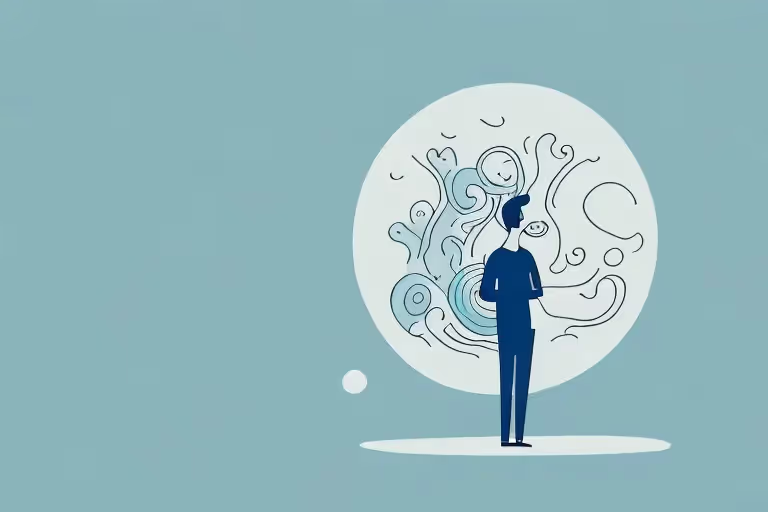Mindfulness has become increasingly popular in recent years as people seek to find balance and peace in their lives. But what exactly is mindfulness, and how can we better understand its essence? In this comprehensive guide, we will delve into the many facets of mindfulness and explore synonyms that can enhance our understanding and practice. By expanding our vocabulary and exploring different cultural perspectives, we can unlock new insights and approaches to mindfulness.
Understanding Mindfulness: A Brief Overview
To truly explore synonyms for mindfulness, it is essential to first grasp the essence of mindfulness itself. Mindfulness is the practice of being fully present in the moment and non-judgmentally aware of our thoughts, feelings, and sensations. It invites us to cultivate a heightened sense of awareness and compassion towards ourselves and others. By practicing mindfulness, we can tap into the present moment and experience a sense of deep connection and inner peace.
The Origins of Mindfulness
Mindfulness has its roots in ancient Eastern philosophies such as Buddhism, where it has been practiced for thousands of years. The teachings of renowned figures like Siddhartha Gautama (Buddha) emphasize the importance of being present and fully engaged in each moment. Over time, mindfulness has found its way into various Western spiritual and secular practices as well, gaining recognition for its numerous benefits.
One of the earliest mentions of mindfulness can be found in the ancient Buddhist text called the Satipatthana Sutta. This text outlines the four foundations of mindfulness, which include mindfulness of the body, feelings, mind, and mental objects. These foundations serve as a guide for practitioners to develop a deep understanding of their own experiences and cultivate a sense of clarity and insight.
Throughout history, mindfulness has been passed down from teacher to student, with each generation adding their own insights and interpretations. Today, mindfulness is not limited to Buddhist traditions but has become a universal practice embraced by people from all walks of life.
The Importance of Mindfulness in Daily Life
In our fast-paced modern world, mindfulness has become a valuable tool for managing stress, improving mental well-being, and enhancing overall quality of life. By incorporating mindfulness into our daily routines, we can cultivate a greater sense of clarity, focus, and emotional resilience. It can also help us break free from the autopilot mode of living and cultivate a deeper appreciation for the present moment.
Research has shown that practicing mindfulness regularly can have a wide range of benefits. It can reduce symptoms of anxiety and depression, improve attention and concentration, strengthen relationships, and promote overall well-being. By training our minds to be more present and aware, we can navigate life's challenges with greater ease and find joy in the simplest of moments.
One of the key aspects of mindfulness is the practice of non-judgmental awareness. This means observing our thoughts, feelings, and sensations without labeling them as good or bad. By adopting an attitude of curiosity and acceptance, we can cultivate a compassionate and non-reactive stance towards our experiences. This allows us to let go of self-criticism and judgment, leading to a greater sense of self-compassion and inner peace.
Furthermore, mindfulness can help us develop a deeper understanding of ourselves and others. By paying attention to our thoughts and emotions, we can gain insight into our patterns of behavior and beliefs. This self-awareness can lead to personal growth and transformation, as we become more conscious of our choices and actions.
In conclusion, mindfulness is a powerful practice that has its roots in ancient Eastern philosophies but has gained widespread recognition in the modern world. By cultivating mindfulness in our daily lives, we can experience a greater sense of presence, well-being, and connection with ourselves and the world around us.
The Language of Mindfulness: An Exploration of Synonyms
As with any concept, different words can capture various aspects and nuances of mindfulness. Let us now explore some synonyms that offer alternative perspectives on mindfulness.
Mindfulness, a practice rooted in ancient traditions such as Buddhism, has gained popularity in recent years as a powerful tool for cultivating well-being and inner peace. It is a way of paying attention to the present moment with non-judgmental awareness, allowing us to fully engage with our experiences and live more fully.
Awareness: A Key Synonym for Mindfulness
Awareness is a fundamental element of mindfulness. It involves consciously observing the present moment without judgment. By cultivating awareness, we can develop a greater understanding of our thoughts, emotions, and physical sensations, empowering us to make conscious choices and respond to life's challenges with wisdom and compassion.
When we practice awareness, we become attuned to the subtle shifts in our internal landscape. We notice the thoughts that arise in our minds, the sensations that ripple through our bodies, and the emotions that ebb and flow within us. This heightened awareness allows us to navigate life with greater clarity and insight.
Presence: Another Interpretation of Mindfulness
Presence refers to the state of being fully engaged in the here and now, free from distractions and preoccupations. When we practice presence, we bring our complete attention to the present moment, allowing us to fully experience life as it unfolds and deepening our connection with ourselves, others, and the world around us.
In a world filled with constant distractions, cultivating presence can be a transformative practice. It helps us break free from the grip of past regrets and future worries, allowing us to fully immerse ourselves in the richness of each moment. When we are present, we listen more deeply, speak more authentically, and connect more genuinely with others.
Consciousness: A Deeper Understanding of Mindfulness
Consciousness, in the context of mindfulness, refers to an expanded state of awareness that transcends our ordinary levels of perception. It is a state of heightened consciousness where we become aware of the interconnectedness of all things and recognize our essential nature. By cultivating consciousness, we can tap into a profound sense of unity and find meaning in our existence.
When we delve into the realm of consciousness, we begin to see beyond the surface-level experiences of our lives. We start to recognize the underlying patterns and interconnectedness that shape our reality. This expanded awareness opens up new possibilities for growth, transformation, and deepening our connection with ourselves and the world.
Exploring the synonyms of mindfulness, such as awareness, presence, and consciousness, allows us to approach this practice from different angles and gain a more comprehensive understanding of its essence. Each synonym offers a unique perspective, shedding light on the multifaceted nature of mindfulness and its potential to enhance our lives.
How Different Cultures Interpret Mindfulness
Mindfulness is a concept that transcends cultural boundaries. However, different cultures may interpret and practice mindfulness in unique ways. Let's explore how mindfulness manifests in Eastern and Western thought.
Mindfulness in Eastern Philosophies
In Eastern philosophies like Buddhism and Taoism, mindfulness is deeply interwoven into the fabric of spiritual practice. It is seen as a path to liberation and enlightenment, a means to transcend suffering and achieve awakened awareness. Techniques such as meditation, breath awareness, and mindful movement form the core of mindfulness practice in these traditions.
Mindfulness in Western Thought
In the Western world, mindfulness has gained popularity as a secular practice with proven benefits for well-being. It has found its place in psychotherapy, stress reduction programs, and even corporate settings. Mindfulness in Western thought often emphasizes the cultivation of self-compassion, resilience, and emotional intelligence, offering practical tools for navigating the challenges of daily life.
The Role of Synonyms in Enhancing Mindfulness Practice
Expanding our mindfulness vocabulary can enrich our practice and deepen our understanding of its core principles. By exploring synonyms, we gain fresh perspectives and discover new avenues for growth and self-exploration.
Expanding Your Mindfulness Vocabulary
It can be helpful to create a personal "mindfulness synonym bank," where you collect words that resonate with your experience of mindfulness. As you encounter different words and concepts, reflect on how they align with your understanding and how they can enhance your practice.
How Synonyms Can Deepen Your Understanding of Mindfulness
Each synonym for mindfulness offers a unique lens through which we can explore this transformative practice. By considering diverse perspectives, we can expand our conceptual framework and gain a deeper understanding of the ever-evolving nature of mindfulness. Embracing synonyms can help us tap into different aspects of mindfulness and uncover new layers of insight and wisdom.
Practical Applications of Mindfulness Synonyms
Synonyms for mindfulness can be utilized in various practical contexts, further enhancing the way we incorporate mindfulness into our lives.
Using Synonyms in Mindfulness Meditation
During mindfulness meditation, we can experiment with using synonyms as anchors for our attention. For example, instead of focusing solely on the breath, we can direct our attention to the sensations of presence or the awareness of consciousness. This approach expands and deepens our meditation practice, offering fresh perspectives and insights.
Incorporating Synonyms into Mindfulness Exercises
When engaging in mindfulness exercises, such as mindful walking or eating, we can introduce synonyms to broaden our experience. By attuning ourselves to the different aspects of mindfulness, such as awareness or consciousness, we can approach these exercises with a renewed sense of curiosity and openness.
By dexterously weaving various synonyms for mindfulness into our practice, we unlock the potential for a more comprehensive and transformative experience.
Unlock the potential of your mindfulness practice with the Aura Health App. Designed to help you develop a consistent mindfulness habit, the app offers guided meditations, relaxing music, and personalized recommendations based on your needs and goals. With Aura, you can cultivate mindfulness anytime, anywhere and experience the profound benefits it brings to your well-being.
Aura is Your All In One App for Meditation, Mindfulness Wellbeing
Find peace every day with one app for your whole well-being. There is no one-size-fits-all solution to mental well-being. Aura is the first all-in-one wellness app that learns how to best help you. Discover an endless library of expert-created tracks for your well-being, all taught by the world’s best coaches, therapists, and storytellers. With Aura's personalized recommendations, you can find peace every morning, day and night.



.webp)






.avif)

%20(1).avif)


.avif)
.avif)
.webp)


.avif)


















































































































.avif)

















.svg)









